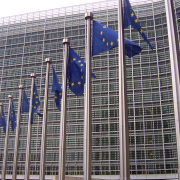On 1 January, Croatia took over the presidency of the Council of the European Union. Croatia will hold the presidency for six months and during this time will lead the activities of the Council.
Croatia has built its presidency programme based on national priorities and in line with the EU Strategic Agenda 2019-2024, and wants to focus on sustainable development, a networked economy, safety, and positioning Europe as a global leader.
The main agricultural focus throughout the Croatian presidency will be progressing discussions on the Common Agricultural Policy reforms, with the objective of defining the rules of the new CAP to align them with the new priorities of the EU.
Parallel to the proposed future CAP structure, the presidency will give special attention to supporting family farms, vulnerable rural communities and modernising agricultural and rural areas. This includes the introduction of ‘smart villages’ to increase the competitiveness of European farms and rural holdings. In addition to the CAP reforms, the Agriculture and Fisheries Council will also work to achieve an equal level of phytosanitary protection throughout the EU, as well as equal conditions for European manufacturers and traders.
Discussions on measures for the prevention, control and eradication of animal diseases at the European level will also continue throughout the presidency, with consumer protection and food safety issues to be discussed in the context of the new European Green Deal and ‘Farm to Fork’ strategy, which will be central to the tenure of the presidency.
MEPs pass motion on pollinators
At the end of December in the last plenary of 2019, MEPs passed a non-binding resolution on bees and other pollinators, calling for an update to the 2018 EU Pollinators Initiative to include a full ban on the sale, production and use of neonicotinoids across the EU and to create targets for reducing the use of bee harming pesticides in the CAP. The resolution calls on the European Commission to publish a detailed Action Programme with resources and targeted measures to protect pollinators, with mandatory reduction targets on plant protection products to be included in the revised Sustainable use of Pesticides Directive. While the Parliament said that it supports the Pollinators Initiative, it feels that it does not protect bees and other pollinators from some major causes of their decline including pesticides and “intensive farming”. While this resolution is non-binding and therefore no legislative action is expected as a result, it is a clear indicator of the direction of travel and strength of feeling on these issues within the Parliament.
Member states support minor uses facility
In the December meeting of EU agriculture ministers there was broad support for the Minor Uses Coordination Facility, a resource set up in 2015 to coordinate and support work into minor uses of pesticides among member states and stakeholders. Minor use pesticides allow farmers to grow niche crops of high value. The facility is facing uncertainty of the future of its funding, which is provided by the member states. At the council meeting the new EU Commissioner for Health and Food Safety, Stella Kyriakides, highlighted the importance of the facility and it’s continued funding. Ministers from Scandinavian, eastern and Mediterranean member states all voiced their concern about the lack of minor uses plant protection products available and the need to strengthen and support the facility.
Source: Agropages

